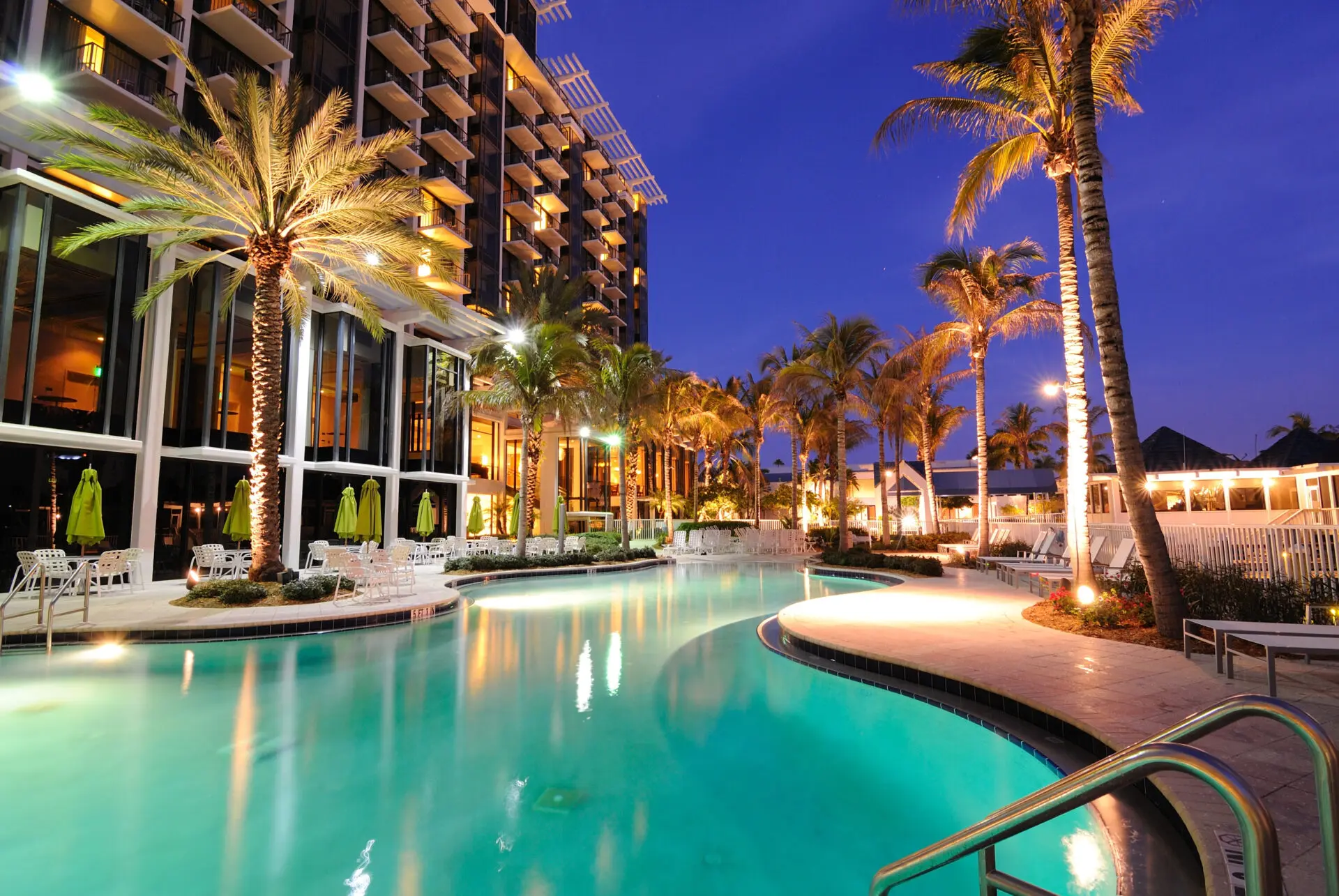
Investing in a commercial pool is more than just adding a luxury amenity—it’s a strategic move that can significantly enhance the overall value of a hotel or resort. Beyond providing a space for guests to relax, a well-designed pool can attract more visitors, improve guest satisfaction, and offer long-term returns for hotel owners. This article explores how commercial pools impact property value, supported by verified data and government-backed insights.
The Visual and Social Appeal of Commercial Pools
A pool often becomes the centerpiece of a hotel or resort’s outdoor area. It serves as both a visual attraction and a social hub, offering guests a place to unwind, socialize, and enjoy recreational activities. Beyond aesthetics, a pool symbolizes luxury, comfort, and quality service, which can make a property more appealing to potential buyers.
Experienced commercial pool builders play a vital role in designing and constructing these pools to meet both functional and aesthetic needs. Their expertise ensures that the pool not only enhances guest experience but also complies with safety standards and long-term durability.
According to a 2025 report by Realtor.com, homes and properties with pools can sell at up to 54% higher value than similar properties without pools. This demonstrates how an attractive pool can positively influence the perceived value of a property.
Enhancing Guest Experience
Hotels with commercial pools offer more than just a room—they provide an experience. Families, couples, and business travelers all appreciate having a pool available. Over 60% of hotel guests consider a pool an important factor when booking a stay, according to industry surveys.
Pools encourage longer stays, repeat visits, and positive online reviews, all of which contribute to higher revenue and improved property valuation. Family-friendly pools with shallow areas, adult-only zones, and lounge spaces cater to diverse guest needs, enhancing overall satisfaction.
Boosting Marketability and Occupancy
Adding a commercial pool can directly improve a hotel or resort’s marketability. Properties with modern, attractive amenities like pools stand out in a crowded market. Pools help hotels:
- Attract families, corporate clients, and tourists
- Increase occupancy rates during peak and off-peak seasons
- Offer packages that include poolside dining, spa treatments, or events
Public pool regulations in Texas, enforced by the Department of State Health Services, ensure commercial pools meet safety and sanitation standards, helping boost guest confidence and property appeal.
Commercial Pools as a Long-Term Investment
Investing in a commercial pool is not just a cost—it is a long-term asset. Well-designed pools add measurable value to a property. Real estate experts note that hotels with recreational facilities, including pools, often sell at a premium.
For hotels and resorts, a pool can:
- Increase revenue through higher room rates and premium packages
- Serve as a venue for events, private parties, or corporate gatherings
- Improve brand image and attract high-end clientele
According to Fluidra, properties with well-maintained recreational facilities, including pools, experience higher guest retention and repeated bookings, which directly influences their long-term profitability.
Maximizing Pool Value
To ensure a pool contributes effectively to property value, hotel owners should focus on:
- Design and Size: Pools should complement the property’s architecture and accommodate guests comfortably. Unique designs like infinity edges or rooftop pools can enhance visual appeal.
- Safety and Accessibility: Shallow areas for children, ramps for accessibility, and non-slip surfaces increase guest safety and satisfaction.
- Maintenance: Regular cleaning, water treatment, and seasonal upgrades maintain the pool’s appeal and prevent depreciation.
- Additional Amenities: Heated water, slides, cabanas, and poolside bars can enhance the overall guest experience and increase perceived property value.

Guest Retention and Repeat Business
Hotels with pools often enjoy higher guest retention. Guests are more likely to return to properties offering comprehensive leisure facilities. Positive pool experiences also lead to social media mentions and online reviews, strengthening the property’s reputation.
Over 60% of travelers report that a hotel pool strongly influences their decision to return to the same property, highlighting the role of pools in customer loyalty.
Sustainability Can Add More Value
Modern, commercial pools can integrate energy-efficient designs, such as solar heating systems, LED lighting, and water-saving technologies. These innovations reduce operating costs while appealing to environmentally conscious guests.
Sustainability features not only save money but also enhance the property’s market image. Government incentives in some states encourage eco-friendly pool installations, adding further value and appeal to environmentally minded investors.
Making Your Property Stand Out with a Pool
A commercial pool is more than just a luxury—it is a strategic investment that can elevate a hotel or resort. By improving guest experience, increasing occupancy, and offering long-term revenue opportunities, a well-designed pool can transform a property from ordinary to extraordinary. With proper planning, compliance with government safety standards, and attention to design and sustainability, hotel owners can maximize both their property’s value and guest satisfaction. Knowing the early signs of a pool upgrade can further help in maintaining long-term quality and guest appeal.
Frequently Asked Questions (FAQs)
1. How much does it cost to build a commercial pool for a hotel?
The cost of constructing a commercial pool can vary widely based on factors such as size, design, materials, and location. On average, building a commercial pool starts at $100,000.
2. What types of pools are best suited for hotels and resorts?
Common types include lap pools for fitness-focused guests, family pools with shallow areas, infinity pools for luxury appeal, and rooftop pools offering panoramic views.
3. How does a pool impact hotel occupancy rates?
A well-maintained pool can significantly boost occupancy rates. Hotels with pools often experience higher demand, especially during peak seasons.
4. Are there government regulations for commercial pools?Yes, in Texas all commercial pools must follow state and local safety, sanitation, and accessibility standards set by the Department of State Health Services.
5. Can a pool increase the resale value of a hotel?
Yes, hotels with high-quality recreational facilities, including pools, often attract higher offers from potential buyers, as these amenities are desirable to guests and can lead to increased revenue.
